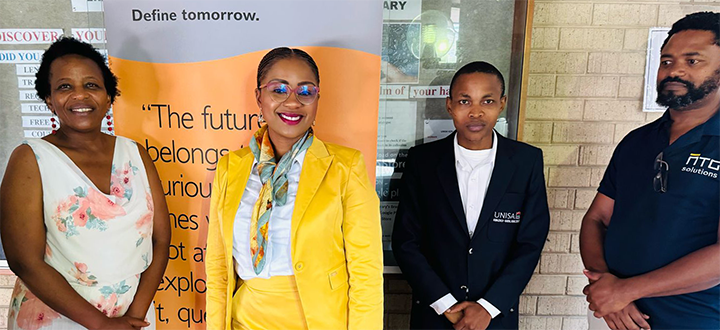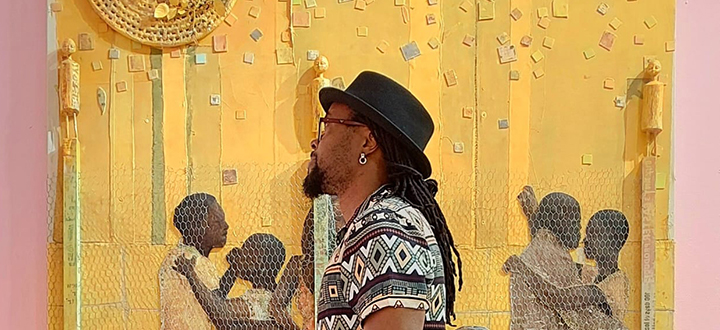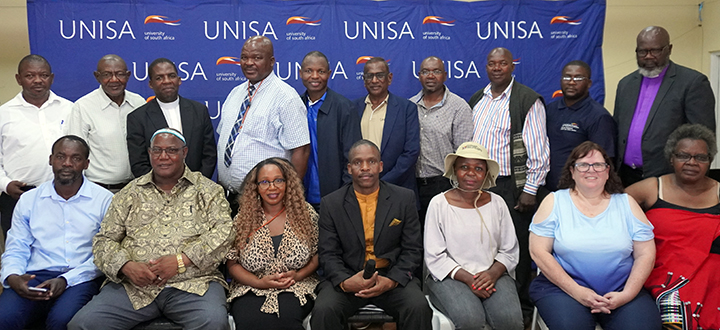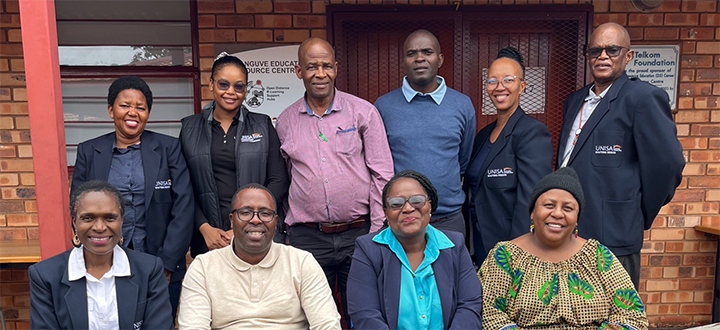College of Education
Finding a new voice in a new culture

What is institutional culture?
“Just as every social group and community has its own culture that affects the daily lives of its individuals, so too do universities; great institutions of higher education have their own culture. Each one is different, of course, and if even the slightest change occurs, the natural order of that institution’s culture changes along with it.”
Luvalo noted that Unisa, an institution that is now a merging of three, including Vista and Technikon SA, has a whole life of its own that is very different from other institutions of higher education. As an institution for open distance learning (ODL), Unisa boasts a completely unique culture, but one that is very changed since its 2004 merger.
“It may seem, in light of the recent protests, that students almost feel “unwelcome” in the new culture of Unisa. But this feeling of unwelcomeness is not specific only to Unisa. Many universities felt the same shifting of these mergers and the feeling of displacement from students is something that occurred across the country, which is potentially why student protests have been a nationwide struggle.” Luvalo also noted that ODL might leave many students feeling alienated, on top of that feeling of uncertainness and insecurity, thus heightening tensions.
“That being said, I gave my focus to the institutional culture amongst academics, which made me feel that it was somewhat limited. I interviewed academics from three different institutions. What I found was that the concept of institutional culture (the exploration of everything from language, to politics and activities), was difficult for academics to refine to a single definition. They struggled to settle on a specific culture at any one given institution. One common thread among the discourse was the issue of bureaucracy. That too much time is spent on trying to achieve a goal, to get a signature, for example.”
“Another commonality was the pressure placed on “achievement.” Much of the data I collected showed that the institutional culture among staff has been focused on a competitive streak, exacerbated by the need for individual schools and departments to succeed.”
The many positives
“While it may seem that a lot of negative impressions are going around, my research also revealed that many of the changes that have taken place are not just perceived as for the best, but have shown real positive improvements. Transformation forums, for example, are opening a discourse culture that is in sync with the people directly in contact with each institution. What this shows staff is that someone is listening. Much of the collected data of my research revealed that the top-down structure of these new institutions has made staff feel that they have no voice. That orders are filtered down, and messages get lost in the noise, but that no one hears their very valid concerns.” However, Luvalo noted that the discourse among staff at all three investigated institutions has shown that things are changing, that staff are feeling more and more that they have a voice regarding the culture itself. “We are making a change, in spite of a difficult situation, and change takes time. As with all things, patience is key.”
*By Carmen Taxer
Publish date: 2017/10/31

 New Unisa partnership set to benefit youth and unemployed graduates
New Unisa partnership set to benefit youth and unemployed graduates
 Landmark exhibition reflects Unisa's Pan-African vision
Landmark exhibition reflects Unisa's Pan-African vision
 Unisa paves the way for agricultural resilience and sustainability in the Eastern Cape
Unisa paves the way for agricultural resilience and sustainability in the Eastern Cape
 Unisa empowers communities through school literacy project
Unisa empowers communities through school literacy project
 Unisa students embark on an academic journey in Romania
Unisa students embark on an academic journey in Romania